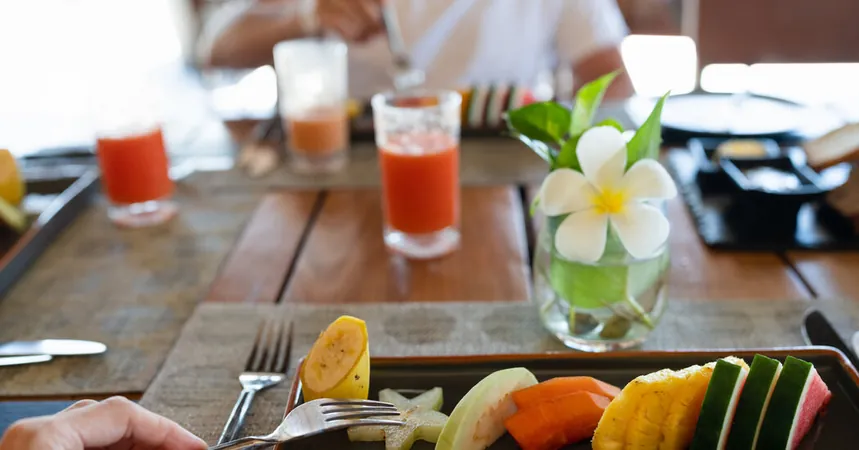
Essential Tips to Avoid Food Poisoning While Traveling: Stay Safe and Enjoy Your Vacation!
2025-03-28
Author: Ying
Traveling is a thrilling adventure, but it can quickly turn into a nightmare if food poisoning strikes. Recent incidents, including the tragic death of 14-year-old Miller Gardner during a family vacation in Costa Rica and a lawsuit linked to food poisoning deaths involving a mother and son in the Dominican Republic, have highlighted the importance of being vigilant about food safety while traveling.
What is Food Poisoning?
Simply put, food poisoning happens when food is contaminated with harmful bacteria, viruses, or parasites. Symptoms can range from mild gastrointestinal distress to severe sickness, including diarrhea, vomiting, fever, and cramps. The timeline for when symptoms appear can vary significantly, sometimes manifesting in just a few hours, while other times it may take up to 24 hours before one begins feeling unwell.
Preventative Measures: Stay Safe While Indulging
To minimize the risk of food-related illnesses during your travels, adhere to the following guidelines:
1. Choose Wisely: Opt for fully cooked meals that are served hot. Avoid raw or undercooked items such as seafood, beef, and egg dishes, which are frequently linked to foodborne illnesses.
2. Be Cautious with Buffets: Buffets can be a breeding ground for food poisoning due to improperly stored dishes. Ensure that hot foods are steaming and cold items are well-chilled.
3. Drink Safely: When it comes to beverages, be wary of ice cubes, which may be made from contaminated water. Choose bottled drinks that are sealed and stored properly.
4. Travel Vaccinations: Immunizations, particularly against hepatitis A, are crucial, as this virus is a common cause of gastrointestinal illnesses globally. Ensure your family is up-to-date on vaccinations before embarking on international trips.
5. Pack Essential Supplies: Bring along oral rehydration solutions to help restore lost fluids. Consider carrying antibiotics for emergencies, but remember they should only be used when advised by a healthcare professional.
What to Do If You Experience Symptoms
If food poisoning symptoms emerge during your trip, staying hydrated is of utmost importance. Consume safe fluids like bottled water, herbal teas, or broths. Seek medical attention immediately, especially if you experience severe symptoms such as relentless vomiting, fever, or bloody diarrhea.
Traveling with children adds an extra layer of concern. Young ones can quickly become dehydrated, so it’s essential to encourage fluid intake and consult medical professionals if they refuse to drink.
Conclusion: Your Health Is Paramount
The key takeaway for travelers is to prioritize health and awareness. Research your destination's food safety standards, and have a plan in place for seeking medical help. Many resorts offer assistance, but you must be proactive about insisting on care if you need it.
Keep these vital tips in mind for a safe and enjoyable journey, and avoid letting food poisoning spoil your travel plans. Bon voyage!


 Brasil (PT)
Brasil (PT)
 Canada (EN)
Canada (EN)
 Chile (ES)
Chile (ES)
 Česko (CS)
Česko (CS)
 대한민국 (KO)
대한민국 (KO)
 España (ES)
España (ES)
 France (FR)
France (FR)
 Hong Kong (EN)
Hong Kong (EN)
 Italia (IT)
Italia (IT)
 日本 (JA)
日本 (JA)
 Magyarország (HU)
Magyarország (HU)
 Norge (NO)
Norge (NO)
 Polska (PL)
Polska (PL)
 Schweiz (DE)
Schweiz (DE)
 Singapore (EN)
Singapore (EN)
 Sverige (SV)
Sverige (SV)
 Suomi (FI)
Suomi (FI)
 Türkiye (TR)
Türkiye (TR)
 الإمارات العربية المتحدة (AR)
الإمارات العربية المتحدة (AR)